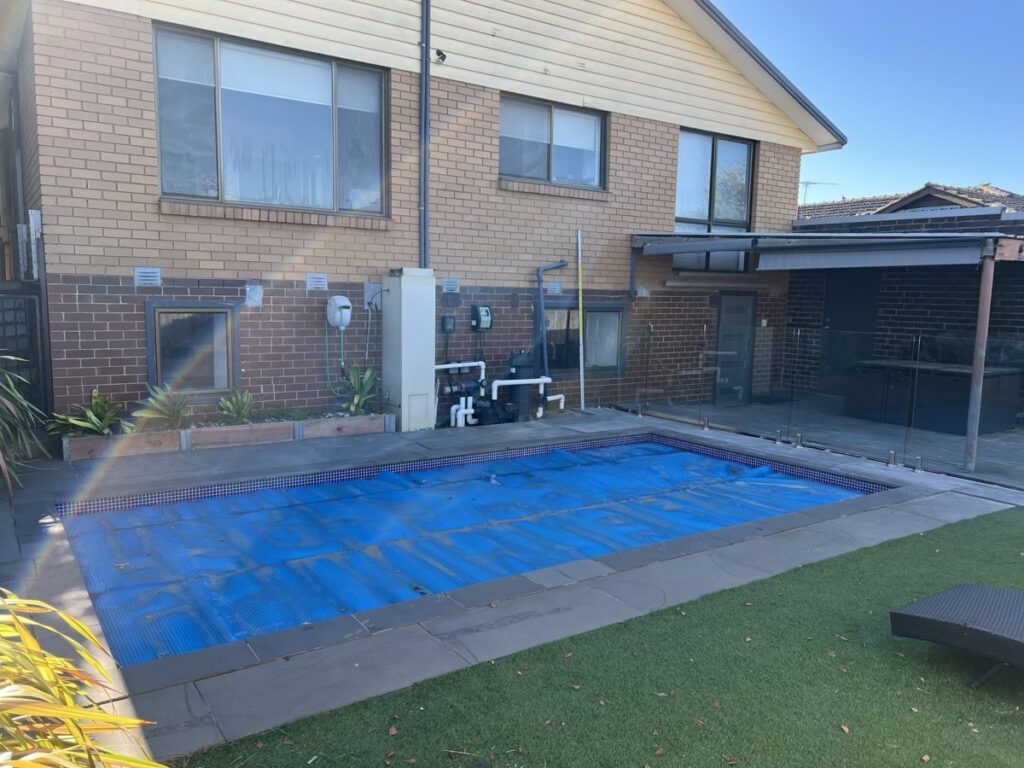A swimming pool can be a fantastic feature when buying a new home. It adds value, offers a lifestyle upgrade, and is perfect for entertaining. But before signing on the dotted line, one important question must be asked: Does the pool have a current compliance certificate?
In Victoria, and particularly in places like Melbourne, where residential pools are common, a pool compliance certificate is not just a bonus; it’s a legal requirement. Here’s what you need to know before diving into a property with a pool or spa.
What Is a Pool Compliance Certificate?
A pool compliance certificate is an official document issued after a swimming pool inspection verifies that the safety barriers meet Victoria’s pool safety standards. It confirms that the pool area complies with the Victorian Building Authority’s (VBA) safety regulations designed to prevent accidents, especially involving children.
Since 1 December 2019, all owners of pools and spas in Victoria are legally required to:
- Register their pool or spa with the local council.
- Arrange a pool safety barrier inspection by a registered building inspector or surveyor.
- Lodge a certificate of compliance with the council every four years.
Why Is It Important When Buying a Home?
If you’re purchasing a property with a pool, you inherit the legal responsibilities that come with it, including registration, compliance, and ongoing maintenance of safety features.
Here’s why the pool compliance certificate matters:
1. Legal Obligation
Without a valid certificate, you may unknowingly purchase a non-compliant pool. That can lead to fines, enforcement notices, and the burden of making costly modifications to meet compliance.
2. Safety Risks
Non-compliant barriers significantly increase the risk of accidents. Swimming pool inspections help ensure gates self-close, fences are high enough, and there’s no climbable access for small children. When a current compliance certificate is provided, you know that a qualified professional has signed off on the pool’s safety. It removes the guesswork and liability.
Pool Compliance Inspections in Melbourne
In Melbourne and throughout Victoria, pool compliance inspections must be conducted by a registered inspector who assesses the barrier against the relevant Australian Standards based on the pool’s construction date.
The inspector will check:
- Fence height and strength
- Gate latching and self-closing functionality
- Non-climbable zones (e.g., trees or furniture near the fence)
- Door and window access from the house to the pool area
- Spacing between fence rails and ground clearance
If compliant, the inspector issues a Certificate of Pool and Spa Barrier Compliance (Form 23), which must be lodged with your council within 30 days.
What If the Pool Is Non-Compliant?
If the pool barrier does not meet safety standards:
- The inspector will issue a non-compliance notice (Form 24).
- You’ll be given up to 60 days to carry out repairs or upgrades.
- A follow-up inspection will be required before a compliance certificate is issued.
If you’re buying a property where the pool is not yet certified, you may be liable for:
- Corrective work and repair costs
- Follow-up inspection fees
- Council penalties if the property fails to meet compliance deadlines
When Should You Ask for the Certificate?
Before settlement, during the pre-purchase stage, request a current pool compliance certificate from the seller or their agent. If it hasn’t been lodged recently, you’re entitled to know whether the pool is registered and compliant.
Tip: Work with a conveyancer familiar with Melbourne property transactions involving pools. They can advise whether the seller has met all obligations under local council and VBA regulations.
Common Mistakes Buyers Make
Here are some of the mistakes:
- Assuming the pool is compliant because it looks new or well-maintained.
- Overlooking the certificate during the inspection phase.
- Failing to budget for repairs in case the pool does not meet code.
- Neglecting the importance of ongoing certification—it’s not a one-time responsibility.
What Sellers Must Provide
If you’re selling a home with a pool or spa:
- Ensure the pool is registered with the local council.
- Schedule a pool safety barrier inspection.
- Obtain and lodge a current compliance certificate before selling.
This not only makes the sale smoother but also avoids legal risks for both parties.
What Buyers Can Do
If the pool does not have a current certificate:
- Negotiate the cost of repairs into the sale contract.
- Request the vendor to arrange inspection and certification before settlement.
- Consult a pool safety inspector or building consultant during the cooling-off period.
Take Away
A sparkling pool may seem like the perfect addition to your dream home, but it comes with safety and legal responsibilities. Before buying, always confirm the presence of a valid pool compliance certificate.
Taking this one step protects you from future expenses, ensures the pool is safe for your family, and keeps you on the right side of Victorian law.








Leave a Reply